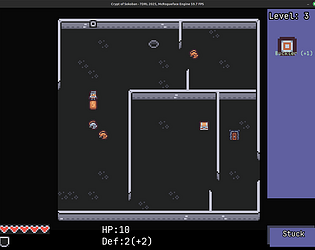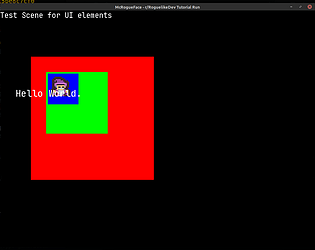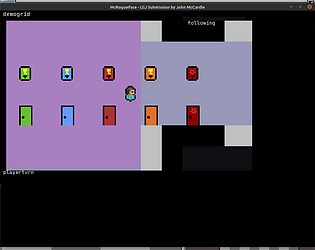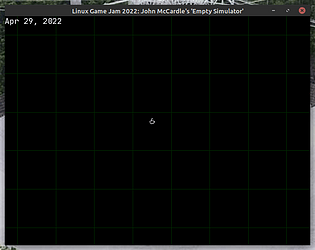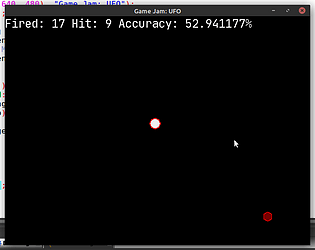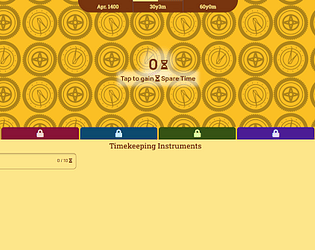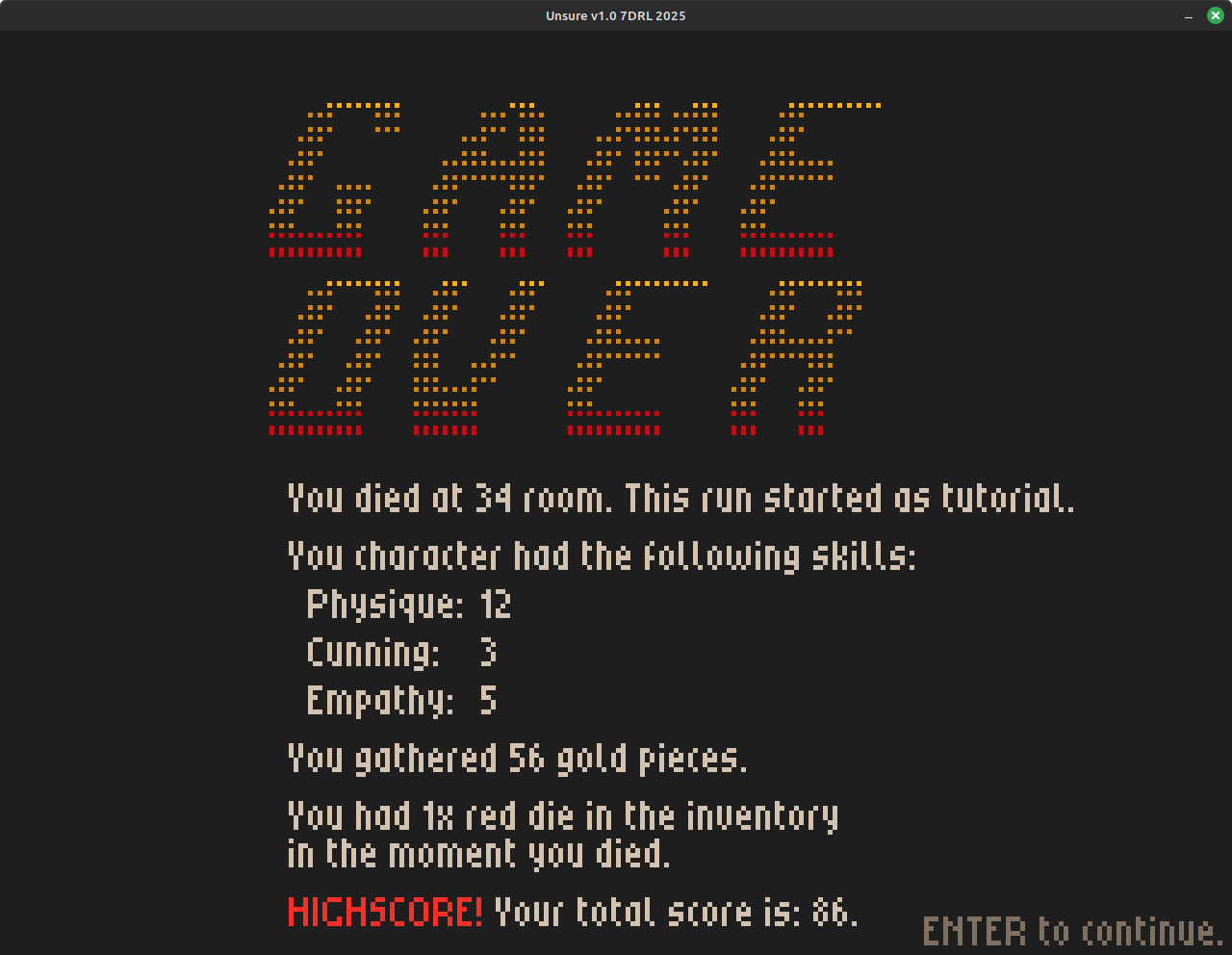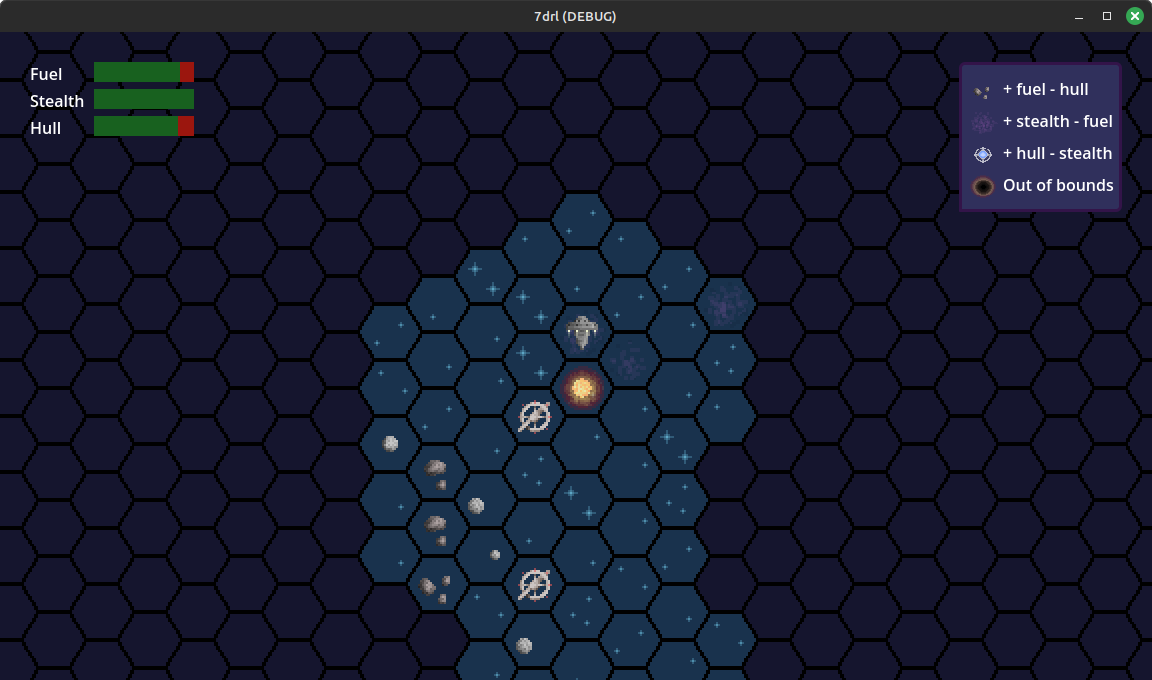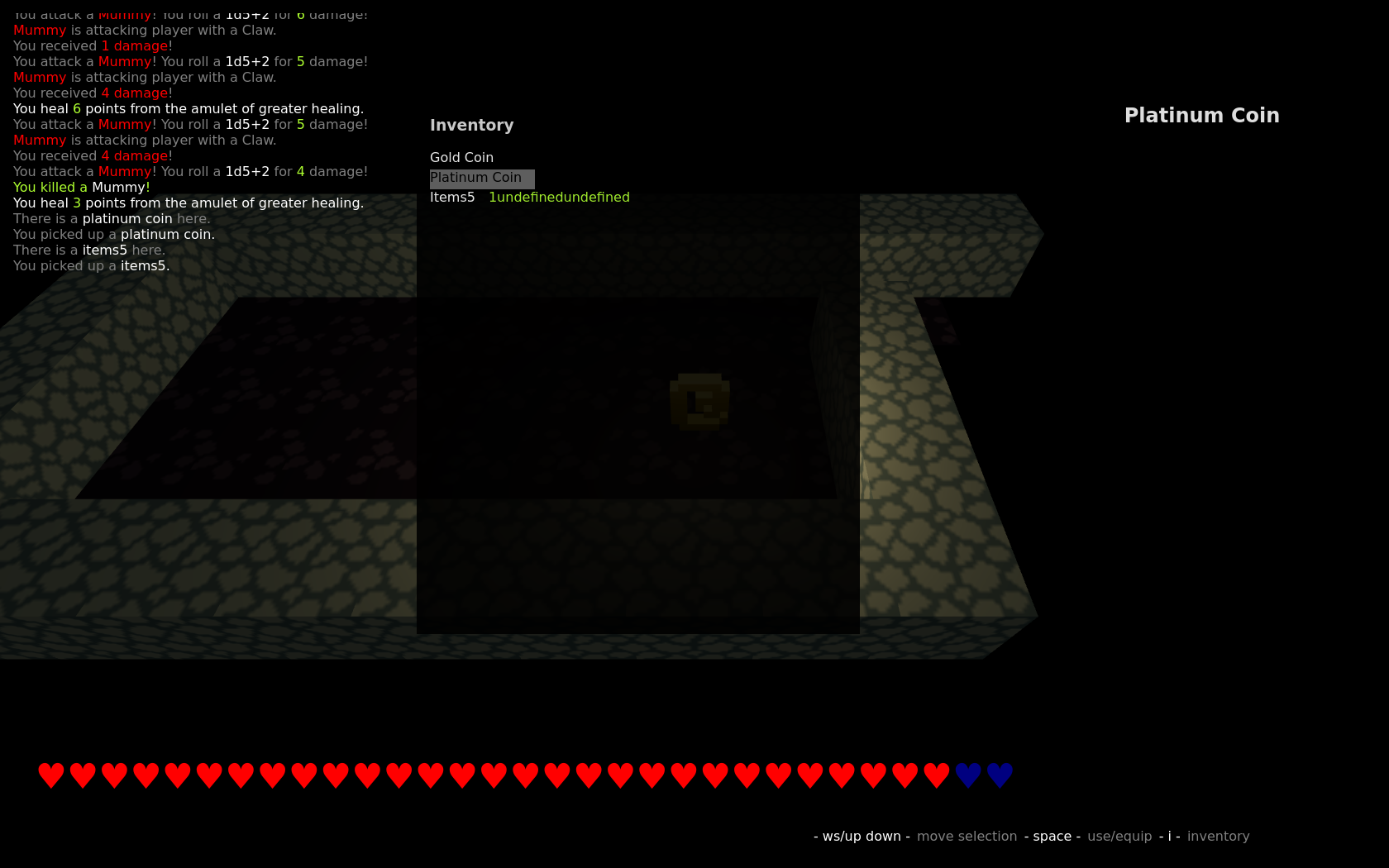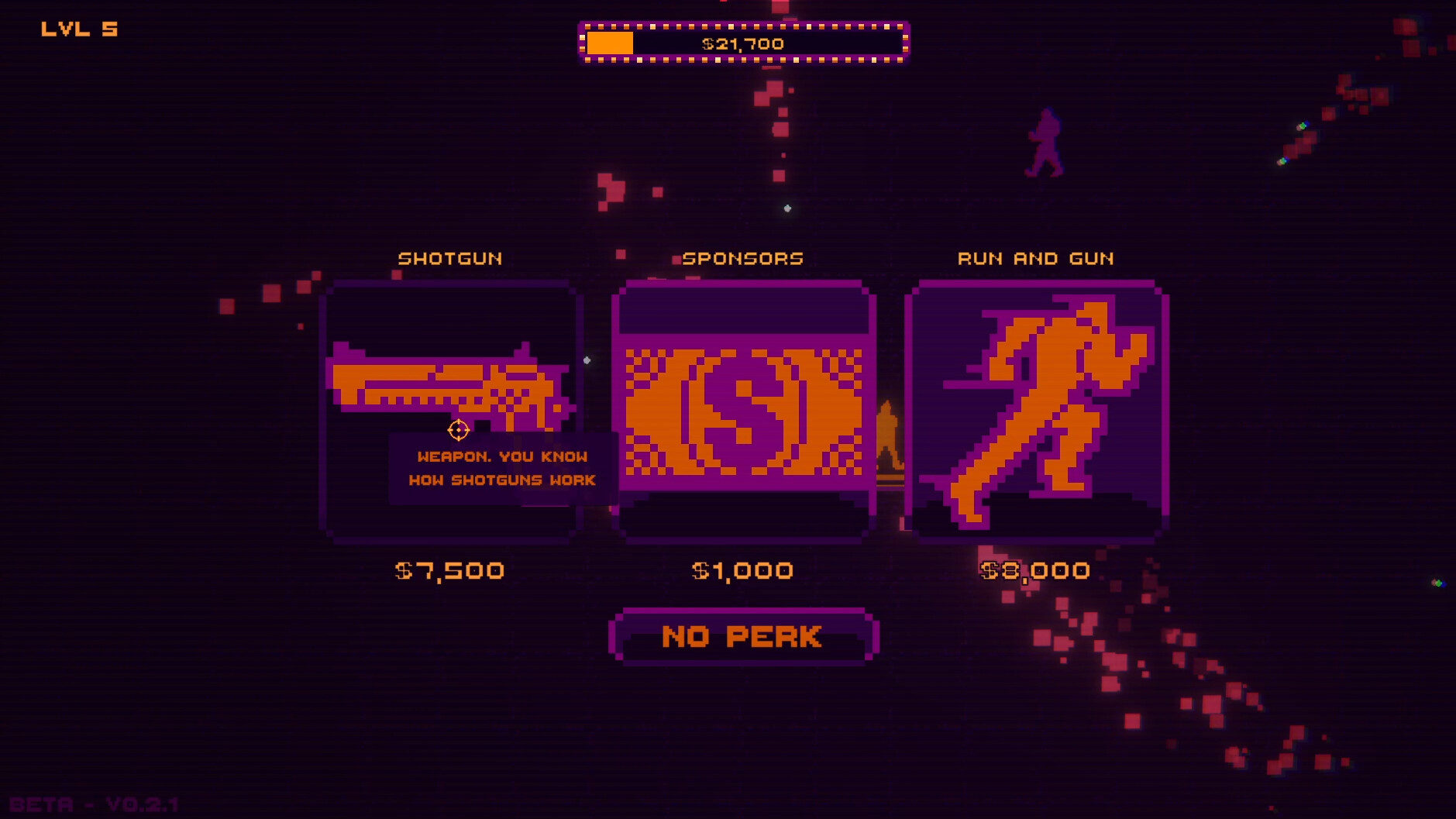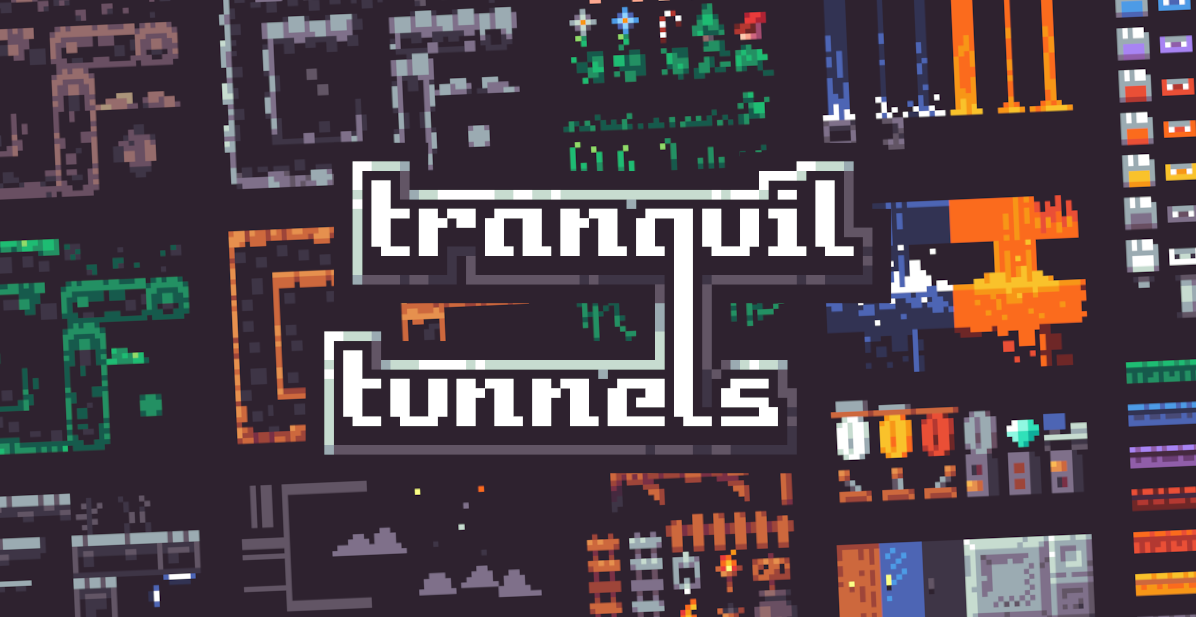THANK YOU for the thorough playthrough!!
- I had more robust level validation, but I broke it when I introduced “pulling” the boulder (mostly concerned with Cyclops’ pushing the rock in a way that makes the level stuck)
- The monster table has a bug that only the smallest rat appears after level 10 or 20…! Whoops! This same bug affects the “buffs” the monsters get, so instead of having higher HP, defense, and damage, you get base difficulty monsters, which basically eliminates all difficulty…
Going forward, I will replace the “stuck” button with a “reset” button, and have the full suite in place to make sure levels are solveable, even regarding chests, monster actions, and hallway-elbows. (There is in fact another bug / incomplete feature that is meant to make open chests something you can walk on top of, but that wouldn’t have been a complete fix)


